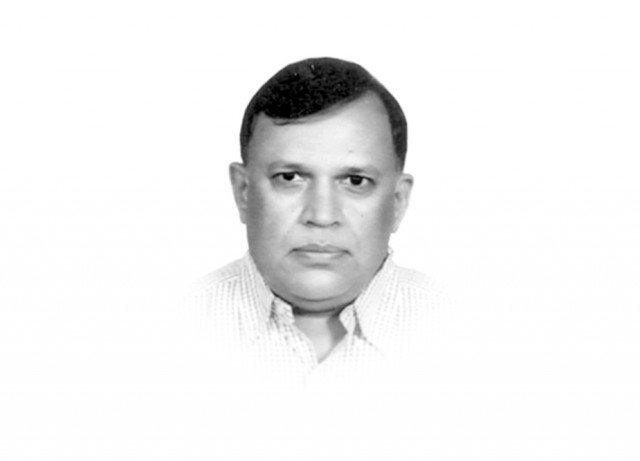Tribute to Malik Barkat Ali
Quaid-e-Azam said of him, "I have lost in him not only a colleague, a collaborator, but also a great friend."

The writer retired from PIA in 2008 after 33 years of service
malik.tariq@tribune.com.pk
In an editorial on June 8, 1916, he wrote: “As we look around in search of Muslim leaders, we must confess that the personality of Mr Jinnah emerges as the most appropriate.” He continued his political activities, attending annual sessions of the AIML in 1917 and 1918. In January of 1920, he was granted a licence to practice as a pleader in the Lahore High Court, and within a few years, made a name for himself in the legal profession. During his early political career, he also came in contact with Mohammad Ali Jinnah.
Barkat Ali was elected to the Punjab Legislature on an AIML ticket in 1937 and 1946. From 1937 to 1944, he alone represented the AIML on the floor of the Punjab Legislature. He participated in the AIML’s annual sessions held at Bombay, Aligarh and Delhi in 1924, 1925 and 1926. Barkat Ali was a close associate of Allama Iqbal, with whom he shared identical views on major political issues. On June 19, 1930, Barkat Ali and Allama Iqbal jointly sponsored a resolution with Gokal Chand and Nanak in the Lahore High Court Bar, condemning the unfair trial of Bhagat Singh. Their association continued until Allama Iqbal’s death in 1938.
On April 29, 1936, Mr Jinnah came to Lahore to organise the Punjab Provincial Election Board. On May 1, 1936, he met Allama Iqbal at his residence, who assured him of his whole-hearted support for the formation of a parliamentary board. A joint press statement was issued by Allama Iqbal, Barkat Ali, Khalifa Shujauddin and Pir Taj Din announcing support and cooperation to Jinnah on May 8, 1936.
The Punjab Muslim League’s session held on May 12, 1936 in Lahore elected Allama Iqbal as president, Barkat Ali and Khalifa Shujauddin as vice-presidents, Ghulam Rasool as secretary and Ashiq Batalvi as joint secretary. Barkat Ali was a member of the Subjects Committee appointed by the AIML Council to prepare the draft of the Lahore Resolution on March 21, 1940.
Barkat Ali died on April 5, 1946 while addressing the special tribunal in the Burma Fraud Case. At a special session of the AIML held in 1946, the Quaid-e-Azam paid a glowing tribute to him:
“I am deeply grieved to hear the very depressing and sad news of the sudden death of Malik Barkat Ali. He was from the very beginning, a true and loyal member of the Muslim League, and on all occasions, he rendered the greatest service to Muslim India. His advice and staunch support on all occasions was of greatest value to the League and myself. Muslim India has lost in him a great man, and I have lost in him not only a colleague, a collaborator, but also a great friend. My deepest sympathies go out to his family in their bereavement for their irreparable loss.”
Published in The Express Tribune, April 5th, 2013.















COMMENTS
Comments are moderated and generally will be posted if they are on-topic and not abusive.
For more information, please see our Comments FAQ